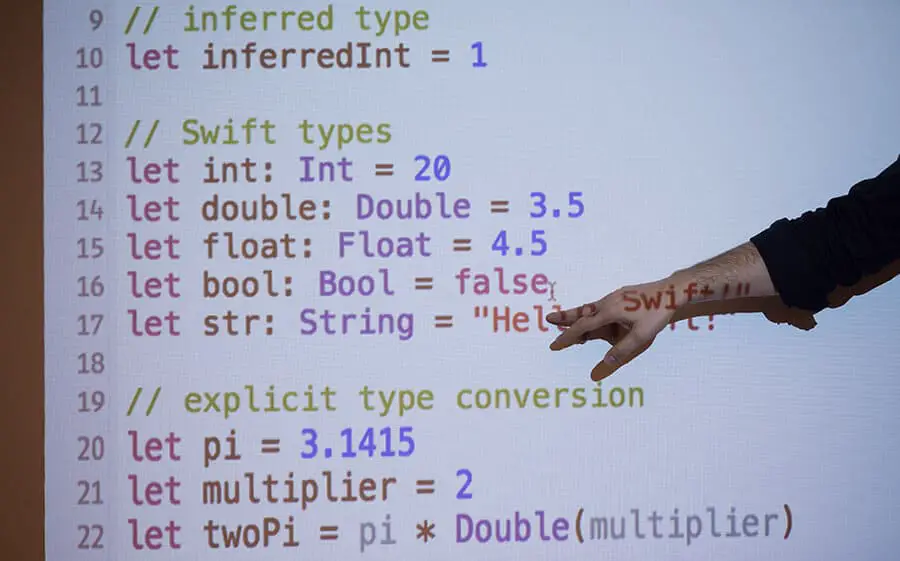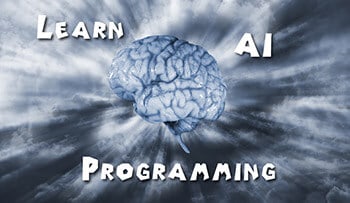How to Master Programming
 If you are a beginner programmer reading this, I will like to congratulate you on displaying one of the traits of great programmers.
If you are a beginner programmer reading this, I will like to congratulate you on displaying one of the traits of great programmers.
This trait is the urge to get better. The hunger for consistent improvement.
Getting started with programming is very easy, it is all interesting and promising. However, it is not all rosy. As with all other fields, it would be difficult sometimes and perhaps frustrating. But the hunger for success would be needed to push an individual in the direction of needed improvement.
This article aims to make it all easy. By giving out important tips to help you become a great programmer, you would progress over time provided consistent effort is put into doing the right things. As you progress through this article, you would find out what the right things are.
When are you a master?
Becoming a master at programming gives you a lot of confidence. It also opens you to a lot of benefits and earns you respect. It should be noted though, that this also brings about some responsibilities.
Let’s take a look at some of the advantages and responsibilities.
You Become The Go-To Guy
When you have developed yourself, your quality becomes glaring for all to see. Therefore, people would look to you for solutions to different problems. People would look in your direction for inspiration. This isn’t limited to the workplace, it applies to the programming community in general. With mastery comes respect.
Higher Salary
You would have a high chance of earning more than others would dream of. Programmers who have mastered their crafts are seen as great assets and clients would do anything to keep a programmer with so much expertise. The world needs a lot of great programmers and when you become one, things would naturally be positioned to favor you.
You Teach Others
 When you have gained mastery of programming, it becomes a duty on you to pass the knowledge on to others. Teaching others gives a sense of fulfillment money would most likely never give you. This feeling reaches a climax when someone you have taught becomes a very good programmer too and writes quality code.
When you have gained mastery of programming, it becomes a duty on you to pass the knowledge on to others. Teaching others gives a sense of fulfillment money would most likely never give you. This feeling reaches a climax when someone you have taught becomes a very good programmer too and writes quality code.
Teaching could be considered a way of giving back to the community.
You Become A Speaker
There are programming events in almost every country in the world. For these events, programmers who have mastered the craft are usually invited so as to serve as an inspiration to others.
When a programmer is very good at what he does, he automatically becomes an authority and has a say in the community as everyone is eager to know his/her opinion.
Clients Would Battle For Your Services
Everybody has twenty-four hours in their day and expert programmers are no different. Therefore, they can only work on as many projects as time would allow.
For this reason, clients would give their all to ensure an expert programmer invests his time in their project.
Basic Programming Concepts
Programming languages are quite similar. If you ask anyone who has written code in two or more languages before, they would tell you that languages all have similar concepts and their syntax is the biggest difference.
When programmers realize this, they focus more on these concepts instead of the syntax. It pays to understand the concepts, the syntax can always be gotten from a single Google search.
The programming concepts to be discussed below are quite basic, however, they are incredibly useful for beginner programmers.
Variables
Computers work with data. For computer programs to work efficiently, programs store this data somewhere in memory. This is where variables come in. Variables are used to label this stored data in memory so they can be used or changed later in the program.
Data Types
Not long ago, while talking about variables it was stated that computers work with data. However, data are of different types. Numbers are different from alphabets, alphabets are different from symbols.
Therefore, the computer needs to know what type the data it is working with. This would help it carry out the right actions on the data type.
In summary, data types are crucial in programming languages. The compiler or interpreter needs to know what the data type is so as to execute actions the correct way.
Operators
Operators are used to carrying out certain tasks on specific data types. They are symbols for performing mathematical, relational or logical operations on data types so as to return a result.
The plus symbol, for example, is an operator, it is used on two numbers to find their sum and return a result.
There are lots of operators in programming and you would come across them over time.
Control Structures
Computer programs are to be run by the compiler or interpreter from top to bottom. However, this pattern can be changed. Since programs are written to solve problems, there would be cases where decisions have to be made based on certain conditions.
Therefore, a control structure has to be put in place.
Control structures are done with the if, else and else if statements. Those statements may vary based on programming language syntax, but they are concepts that exist in all programming languages.
Loops
 As stated in control structures, computer programs would be run from top to bottom. Loops, just like control structures can be used to distort this pattern. Loops are used to execute given actions repeatedly provided a given condition is true.
As stated in control structures, computer programs would be run from top to bottom. Loops, just like control structures can be used to distort this pattern. Loops are used to execute given actions repeatedly provided a given condition is true.
There are two types of loops, the for and while loops. The for loops are used to repeat actions over individual members of data types that contain multiple members e.g arrays. The while loops are used to repeat actions when a condition is true.
Functions
Functions are little pieces of code for carrying out tasks and returning a value at the end of its execution. Functions ensure that the small pieces of code can be reused in different parts of the program without having to type the code all over.
All that has to be done when the function is needed is to call or evoke it. Functions are very important. They help reduce the complexity of the code.
There is a concept very similar to functions and they are known as procedures. Procedures are also little pieces of code for executing tasks, however, they do not return any value at the end of execution.
Object-Oriented Programming
While functional programming requires thinking of solutions in small pieces (functions), object-oriented programming requires thinking of solutions as objects.
Objects have features and behaviors and can be translated into code using attributes (features) and methods (behaviors).
For example, when trying to model a dog into the code, you can have a dog class (a class is a blueprint for creating objects) and give the dog attributes (features) such as a certain weight, height, age, color. You can also give the dog methods (behaviors) such as barking, sleeping, running.
When learning about object-oriented programming, you would come across important concepts such as polymorphism, inheritance, abstraction, and encapsulation.
How to get past the beginner stage
 When learning is done the wrong way, things become difficult and frustrating. Beginner developers keep complaining about feeling like beginners always, this feeling of being stuck in beginner mode forever.
When learning is done the wrong way, things become difficult and frustrating. Beginner developers keep complaining about feeling like beginners always, this feeling of being stuck in beginner mode forever.
The following tips would help you get past the beginner stage and become an intermediate developer.
Choose a language
If you would learn only one thing from this article, it should be this: pick a language and get started.
It is very important to get started with something and work on it. You shouldn’t be disturbed about taking the wrong decision. Since you are just starting out, there is nothing to be scared about. No matter what language you pick, it won’t be a wrong choice as you can always learn another language later on.
Stick to that language
After choosing a language and getting to work, it is important to stick to it. Learn it as deeply as you possibly can without diving into another programming language.
Technologies blow hot and cold, other programmers would preach about their language of choice. However, you would do yourself a lot of good to stick to the chosen language. Clearly, you should learn another language at some point. But that should wait until you have gained a proper grasp of your current language of choice.
Don’t skip any step
When learning to code in a programming language, things may get very boring. Keep going at it. Try to sink in the information regardless of your understanding or not.
Skipping it now would lead to you not understanding something else later, it creates knowledge gaps.
Everything is interwoven, perhaps the reason you do not understand in the first place is that of a knowledge gap. There is something you probably need to know to understand the concept, but you do not.
Therefore, do not skip anything at least for now. Everything is important and should be covered, it is all part of the process.
Find a community of learners
Learning alone is possible, but learning alone is hard. There are other beginner programmers looking to get better at coding, so it would be reasonable to find a community of enthusiastic learners like you.
You do not necessarily have to be active in the community, but there is something seeing other people moving in the same direction as you do. It serves as motivation and would help keep you focused on the goal.
Write code
There is no way to get better at writing code other than writing lots of it. If you do not write code and stick only to theoretical stuff, you wouldn’t be helping yourself in any way.
Write code, lots of it. Either through participating in coding challenges or by building projects.
However, you stand to gain more by building a lot of projects. Mozart didn’t create masterpieces by sitting down and planning them, he improved and created masterpieces by picking up his instruments and playing a lot.
Read code
 When you are not reading up fundamental concepts or writing code, you should be reading them.
When you are not reading up fundamental concepts or writing code, you should be reading them.
To read code shows you how better programmers write their code, helping you learn the better way to write code. It also shows you the defects of poorly written code, so you can learn too.
Learn the best practices of the language
It is not just about knowing the language’s syntax. The best practices and community tools are also very key to learning fast.
When you learn how to write code in a language following the standards, it improves your programming skills immensely.
Use productive programming tools
Use the best tools. Learn the shortcuts. This would help reduce the workload and create an enjoyable learning experience as you can bypass doing a lot of things that are less beneficial.
Don’t stick to old IDEs in the name of working hard, use the latest and the most productive ones.
What coding skills do you need to be an above average developer?
 Great developers write better code than average developers. From experience and consistent learning, they know what makes the code better and more efficient.
Great developers write better code than average developers. From experience and consistent learning, they know what makes the code better and more efficient.
Let’s take a look at these coding skills that helps great developers stand out.
Algorithms
Algorithms are step-by-step instructions that a computer uses to execute given tasks. While there would always be a way, great developers always look for the best way instead.
Efficient algorithms are available to solve certain problems. Great developers know these algorithms and how to implement them, therefore they stand out from the crowd.
Maintainable Code
In truth, as long as your code works the job is done. However, when the code has to be extended for more functionality, an understanding of the previous code base would be needed.
Maintainable code is easy to understand and extend. Complexity naturally creeps into computer programs. Having this in mind allows great developers to look out for things that make the code difficult to understand.
An example of writing maintainable code can be seen from variable naming. The value for the quantity of rainfall on Saturday is better saved with the variable name amountOfSaturdayRainfall than a variable name quantity1.
While one is very descriptive, the other would make life hell for the programmer himself and others.
Quick understanding someone else’s code
More often than not, you would not be writing your code from scratch. You would be writing based on a pre-existing code, therefore you need to be able to understand how this code works to be able to extend it.
To understand the code other people have written, two things have to come into play:
- You should have been reading the code of other developers a lot
- Whatever code you are reading should be following standard principles and should be maintainable.
Debugging
Debugging is important in programming. Being able to debug code comes with experience gained from regular practice. The code is easier to debug when the developer understands the intricacies of the programming language, it is vital to finding the root cause of problems.
Writing maintainable code should always be emphasized, it makes for easier debugging.
Writing tests
Tests make code easier to write and debug. Complexity increases with every line of code, therefore tests make the complexity easier to manage.
Tests ensure your functions or methods are doing what you intend, alerting you to make corrections when a different result is gotten.
Tests are easier to write when a maintainable code is written. One of the principles of writing maintainable code is that a function or method should do only one thing. This makes it easier to know what to test for when writing tests.
Design patterns
Design patterns just like algorithms help improve the efficiency of the code. They also make it easier to write maintainable code.
There are lots of design patterns that can be followed to solve certain problems. Having the knowledge of those design patterns and their implementations drastically increase productivity.
Learn new languages
While knowing how to code in only one programming language doesn’t make you less of a programmer, it does prevent you from understand certain concepts.
Learning new programming languages helps programmers see different approaches to solving problems, it also helps you understand the motive behind certain language design choices.
A programmer who has always written code in C++ would gain a lot when changing to a fully functional language like Lisp.
This could contribute to improving the understanding of certain programming language concepts.
What non-coding skills do you need to be an above average developer?
 Programmers tend to focus largely on improving technical skills, so much that they forget about important non-technical skills. This also plays a huge role in differentiating great programmers from the rest.
Programmers tend to focus largely on improving technical skills, so much that they forget about important non-technical skills. This also plays a huge role in differentiating great programmers from the rest.
Let’s take a look at these vital non-technical skills.
Leadership
You should learn to lead. At some point in your career, you would be in a leadership position, be it in a small or big team. Therefore it is important to know how to rally others together and push towards achieving given goals.
Teamwork
As a programmer, you would barely work in isolation. You would have to work in teams at some point, even when working remotely.
Therefore you should learn how to get along with others despite the individual differences or opinions on certain technologies.
Write
Learning to write is very important. Write about events you attended, concepts you have learned, frameworks you have tried out.
This shows your authority in your field of choice and helps you gain respect, it is not always about writing code. Your write-ups could prove very useful to someone out there.
Networking
Nobody is an island of knowledge. Therefore, networking is key. Since programmers are building software to solve real-life problems, they should network with people from all kinds of fields such as entrepreneurs, doctors, economists etc.
You never can tell which relationship could positively boost your career.
Making time estimates
Most projects are time-dependent, therefore clients would need a time estimate for project completion.
Making the right estimates is critical to building trust between programmer and client. It also helps charge correctly for work done per hour. Making the right estimates comes from experience with similar projects, therefore deep your hands into more projects.
Domain knowledge
It is key to have some knowledge of the field you are building a software solution for. It ensures you are building the right solutions and considering the right factors for every feature.
Domain experts would be needed for projects, however having some knowledge in the domain is a huge positive.
Business
Most clients do not understand fully how technologies work, therefore it would be counterintuitive to use technical terms when speaking to them.
Great programmers learn about how business works. This way they can know how technology would affect the business and communicate with clients in terms they understand.
Clients value programmers with an understanding of the business side of things.
Agile & Scrum
A few years back, this probably would not be on the list. However agile and scrum methodologies are being implemented in teams in recent times. Therefore, you need to have a knowledge of how it works and its importance if you intend to become an above average developer.
Is it necessary to learn outside of work?
In truth, your employees are paying you to get better at the technologies being used at work. However, it is important to learn outside of work.
Great programmers do not let their curiosity be defined only by the workplace. They explore technologies outside the workplace and it comes with a lot of advantages.
Firstly, learning outside work would help improve the understanding of how things work at the workplace. Since a lot of things are interwoven in technology, the knowledge of certain concepts would help you understand some things better.
Secondly, it makes it easier for you to request a change of role. If you learn outside work, it is easier to request another role at work that interests you, provided you have the skills needed to carry out tasks in the new role.
Thirdly, it takes a while before companies change technologies. So even when the technology being used is no longer in vogue, the organization might take a while to make a shift.
When the company finally does, they would be in the search for those who can use the new technologies and workers who do not have knowledge of those technologies would be phased out gradually if not fired for not having knowledge of the company’s new technologies.
Roadmap for becoming a master programmer
 Becoming a master programming goes beyond just learning to code. Having a knowledge of computer science fundamentals is important. While some people believe one cannot master the science of programming without a computer science degree, it should be known that it is a false assertion.
Becoming a master programming goes beyond just learning to code. Having a knowledge of computer science fundamentals is important. While some people believe one cannot master the science of programming without a computer science degree, it should be known that it is a false assertion.
Donald Knuth, Linus Torvalds, Steve Wozniak; names of great programmers without computer science degrees and there are a lot more.
These people have shown that learning computer science isn’t restricted to getting a degree in the field, you can actually learn it on your own. If you have a degree in computer science, good for you. Else, your curiosity has to push you to acquire the needed knowledge.
In the resources section, there is a link to help you learn computer science fundamentals.
Always know that the road to becoming a great programmer is a journey and would take time. Do not rush the fundamentals, take your time on them so as to fully understand them.
Now that it is clear that computer science fundamentals are very important, let’s take a look at how things should shape up on the road to becoming a great programmer in a time frame of one year, five years and ten years.
In One Year
- Learn a programming language: Pick a programming language as soon as possible and work with it.
- Build projects: Do every possible project you can with this language, web applications, mobile applications, command line programs etc.
- Get a job as a junior developer. You can work as one remotely.
- Contribute to basic open source projects.
- Write articles on everything you learn.
In Five Years
- You should choose a specialization.
- Learn more programming languages that support your chosen specialization.
- Work on lots of projects.
- Implement the concepts learned from the fundamentals in projects where possible.
- Get a job as a mid-level developer and then as a senior developer.
- Contribute to complex open source projects.
- Teach others whatever you have learned.
- Mentor other beginner programmers.
In Ten Years
- Look into creating projects that would disrupt the tech industry.
- Look into other specializations and how they would impact your chosen specialization.
- Get a job as a Lead Developer or a Chief Technology Officer if you do not wish to go into project management or business roles.
- Mentor more programmers.
- Write books.
- Speak at events.
Life would always pop up surprises, therefore the points listed above would most likely change. However, it gives an insight into what the career of programmers is like as they progress over the years.
Resources
Teach Yourself Computer Science: Learn about fundamental computer science concepts, this resource provides links to great books for learning the fundamentals.
Teach Yourself Programming In Ten Years: Tips on becoming a great self-taught programmer in ten years by expert programmer Peter Norvig.
Hammock Driven Development (YouTube): A talk about solving hard problems, which is something programmers often.
Clean Code: A book on writing maintainable code.
Code Complete 2: A book on writing code the right way and avoiding complexity.
Freecodecamp: A website that teaches people how to code by creating a beginner friendly environment.
Open source first-timers: A website that puts beginner programmers through the ropes of working on open source projects.
Beginner friendly projects: A list of beginner-friendly open source projects for various programming languages.
Udacity: A website with courses that teach computer science fundamentals as well as other programming technologies such as web and mobile development.
Roadmap to becoming a full stack web developer: A roadmap with beautiful looking diagrams to help you become frontend, backend or full stack web developer.
Free programming books and courses: A Github repository of quality course and books for free.
Work remotely: A Github repository of articles to teach you how to work remotely and list of companies that employ remote programmers.
Conclusion
Mastering programming is quite easy. However, it is difficult to work towards the goal without an idea of the bigger picture.
“You can’t connect the dots looking forward; you can only connect them looking backwards. So you have to trust that the dots will somehow connect in your future.”
– Steve Jobs
Hopefully, this article has helped in the right direction. Keep up with a high level of curiosity and you would become an expert programmer in no time.







